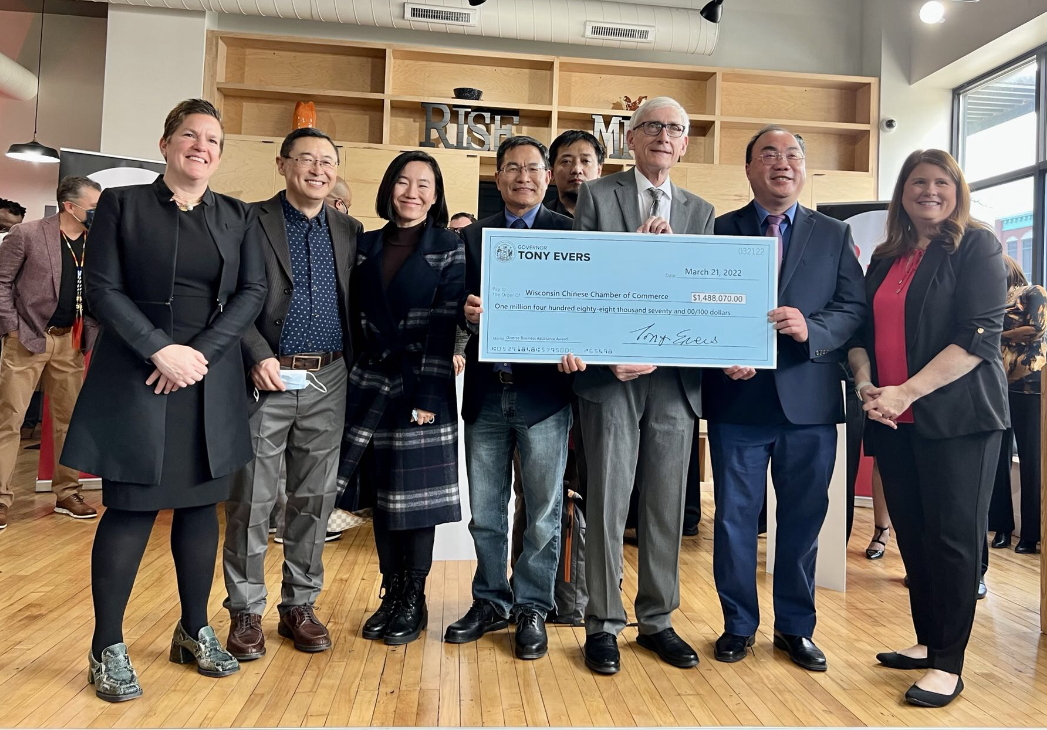Wisconsin Makes a Splash at WEFTEC 2016

Dean Amhaus of The Water Council and Dr. Michael Prange of the German Water Partnership agreed to collaborate on water technology advancements and business development in their respective markets at WEFTEC 2016.
The Wisconsin Economic Development Corporation (WEDC) and The Water Council, based in Milwaukee, once again coordinated efforts to promote Wisconsin’s leading water technology solutions at the annual Water Environment Federation Technological Exhibition and Conference (WEFTEC), held this year in New Orleans Sept. 26-28.
WEFTEC provides a forum for knowledge and technology exchange within the water and wastewater fields. The conference, which alternates each year between Chicago and New Orleans, offers water quality education and training and serves as a leading source for water quality developments, from new research to cutting-edge technologies.
This is the third year that WEDC and The Water Council joined more than 900 industry-leading companies, including more than 30 from Wisconsin, at the world’s largest water quality exhibition. Leveraging WEDC’s In Wisconsin® brand, the Wisconsin booth promotes the state’s integrated solutions designed to address the world’s growing water challenges while showcasing the state’s unique approach to water cluster development. For instance, the Global Water Center serves as the centerpiece of a bustling Water Technology District in Milwaukee, which drew more than $211 million in public and private investment from 2010 to 2015, with the pace of investment still accelerating.

Participants in The Water Council’s BREW Accelerator Program made their business cases to investors and water industry representatives in a fast-paced pitch event at WEFTEC 2016.
In addition to providing operational space to some of the world’s leading water technology companies, the Global Water Center is also home to a one-of-a-kind freshwater seed accelerator, the BREW (Business. Research. Entrepreneurship. In Wisconsin.), whose members participated in “shark tank” style company pitches to investors and others at WEFTEC.
For BREW alumnus Sunit Mohindroo, chief product officer for WatrHub Inc., a data mining and analytics company with offices in Toronto and Milwaukee that helps water industry clients identify and pursue market opportunities, WEFTEC offered strong networking and business development prospects.
“For the last five years, the WEFTEC show has been critical for us to meet new customers, enhance customer relationships that we’ve had in the past, and also check up on what’s going on, particularly with the state of technology,” he said.
WEFTEC also afforded large global companies such as Rockwell Automation an opportunity to connect with both domestic and international customers. Rockwell’s $6 billion business employs 22,000 people worldwide. The company helps its utility and municipality customers meet accelerating water supply and conservation challenges; improve operational and energy efficiency; integrate new technology into aging infrastructure; and improve information security.
Attracting new business investment to the state was a primary objective of both WEDC and The Water Council at WEFTEC, where formal meetings between Wisconsin delegation representatives and their counterparts from the Netherlands, France, South Korea and Germany took place. The event also served as a venue for a memorandum of understanding signing between The Water Council and its German counterpart, The German Water Partnership.
“Those entities in other parts of the world are trying to help their companies come into the United States,” said The Water Council President and CEO Dean Amhaus. “They realize the advantage of being in Wisconsin. It’s no longer, ‘Have they heard about us?’ They know us, and they are seeking us out.”






